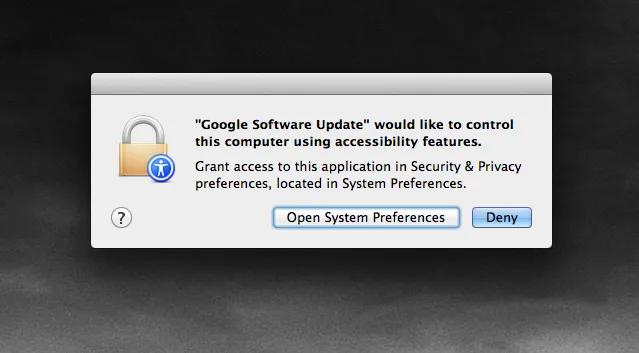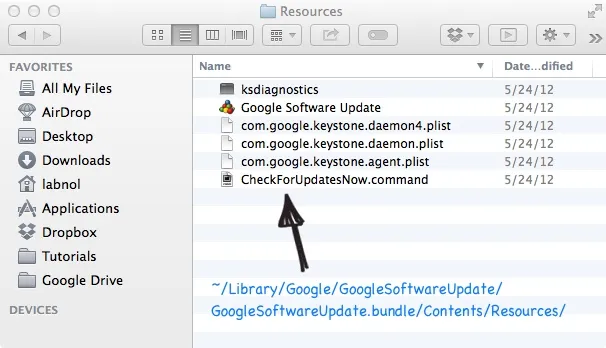If you are using any Google software on your Mac OS (Mavericks), you may seen this dialog box saying that “Google Software Update would like to control this computer using accessibility features.”

You can click the Deny button and the Google software installed on your Mac will continue to work without issues but why is the software updater asking for permission to control the computer?
I have been scanning the online forums and discovered a few threads that seem to explain the problem and what this Google’s Software Updater program is trying to achieve.
The short answer is that Google wants to auto-update any Google software installed on your Mac OS - stuff like Picasa, Google Earth, Google Drive, App Engine or Google Chrome. They want to install updates in the background without the user’s intervention and hence need this permission.
An engineer from the Google Chromium team says that it’s completely safe to Deny this dialog.
The Google Support website has instructions on how to uninstall the Google Software Updater program on your Mac using the terminal app but there’s a caveat. You have to uninstall the corresponding Google applications as well else the Google Software Update will be reinstalled after a few hours.
 Manually run Google Software Update
Manually run Google Software Update
Another option would be that you disable the Google Software Update program from automatically checking the Internet for updates and manually update any Google software on your Mac.
$ defaults write com.google.Keystone.Agent checkInterval 0
Run the command above at the terminal to disable auto-check and open the CheckForUpdatesNow.command to run the checks manually.


